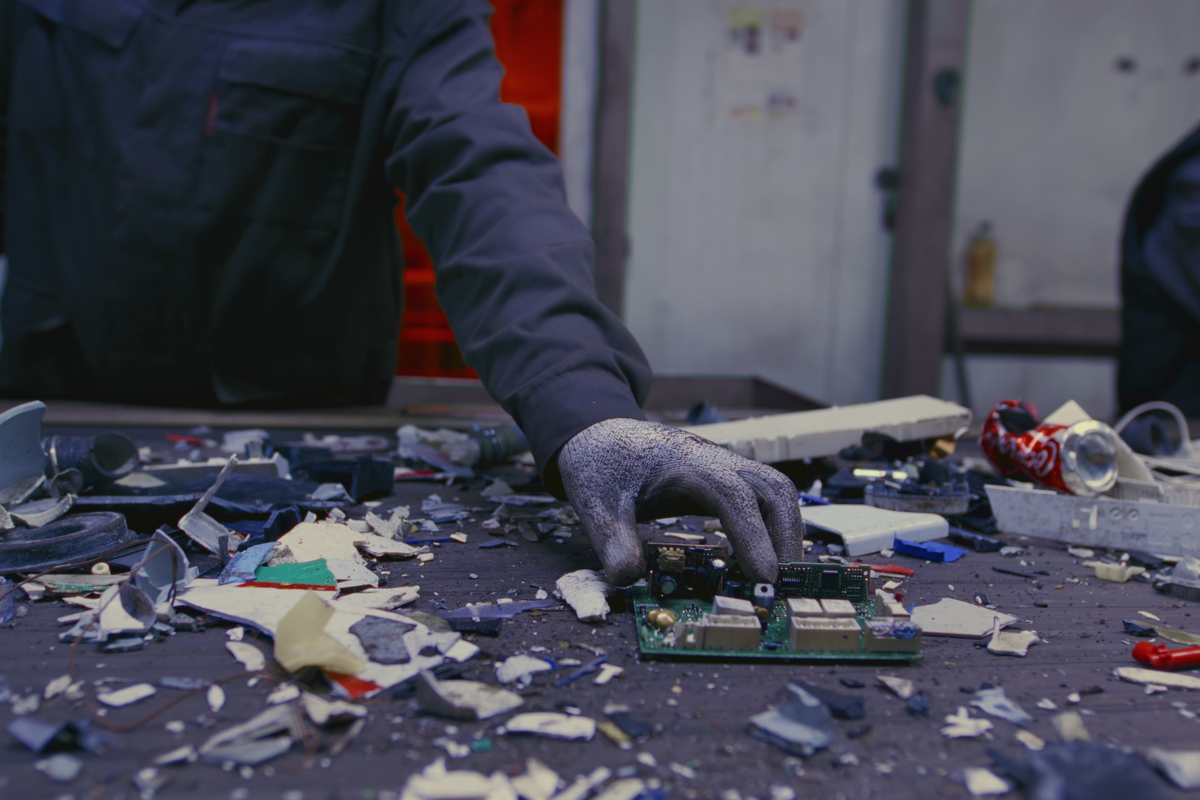
ERI reintroduced 120.39 million pounds of commodities into the economy and processed 3.6 million pounds of electronics for reuse in 2023. | SibFilm/Shutterstock
Of the 124 million pounds of e-scrap nationwide processor ERI collected last year, 97% was processed for commodity recovery and the remaining 3% went to reuse. That was one takeaway from the company’s latest sustainability report.
Fresno, California-headquartered ERI on July 23 released its environmental, social, governance report covering 2023. The company disclosed numerous figures about its operations, including processing capacity, workforce and regulatory compliance.
Company chairman and CEO John Shegerian also took the opportunity to reflect on what he described as “another successful year on multiple levels” and offer a positive outlook for the ITAD market in the near future.
“It was our most financially successful year to date as a business, our most accomplished year in terms of environmental programs and innovation, and perhaps most excitingly, it set the framework for 2024 – which is shaping up to be a year of significant and impactful transformation, with more bold innovations and meaningful partnerships,” Shegerian wrote.
Material recovery by the numbers
The processor operates eight facilities throughout the U.S., employing 789 people in 2023. The company reported full-time workers received 22 hours of training each throughout the year and part-time workers received six hours of training each.
Altogether at its U.S. facilities, ERI collected 123.98 million pounds of electronics throughout the year, generating 120.39 million pounds of commodities reintroduced into the economy, the company reported. The commodities included 52 million pounds of base metals, 17.3 million pounds of precious metals, 25.9 million pounds of plastics, 10.4 million pounds of glass and 2.2 million pounds of batteries.
An additional 3.6 million pounds of electronics were reused. Collection was up 3.3% year over year and commodity recovery was up 3.8%. The volume going to reuse was down 12.2% compared with the prior year.
The company operated in 129 countries in 2023, largely by working with a group of 41 partner companies. Many major ITAD firms form business partnerships with local companies in other countries to grow their global reach.
ERI disclosed it had one environmental and compliance violation and no data security compliance breaches throughout the year.
Data security compliance focuses on chain of custody
ERI’s lack of data security breaches may be in part due to the company’s asset tracking system, which it rolled out in 2021 and upgraded in 2023.
The company’s Optech Capture system is “designed to comprehensively manage and track asset chain of custody throughout the entire ITAD process,” according to the report. As assets are serial-scanned at the site of origin at the customer facility, Optech allows ERI’s field technicians to create a list of products and provide the customer a receipt for those assets. It allows for full tracking of assets during the on-site collection process to ensure no assets go missing or are unaccounted for, and it allows customers to access that information.
“In the ITAD industry, a complete and detailed chain of custody is critical for proper data security and tracking,” Shegerian wrote in the report.

